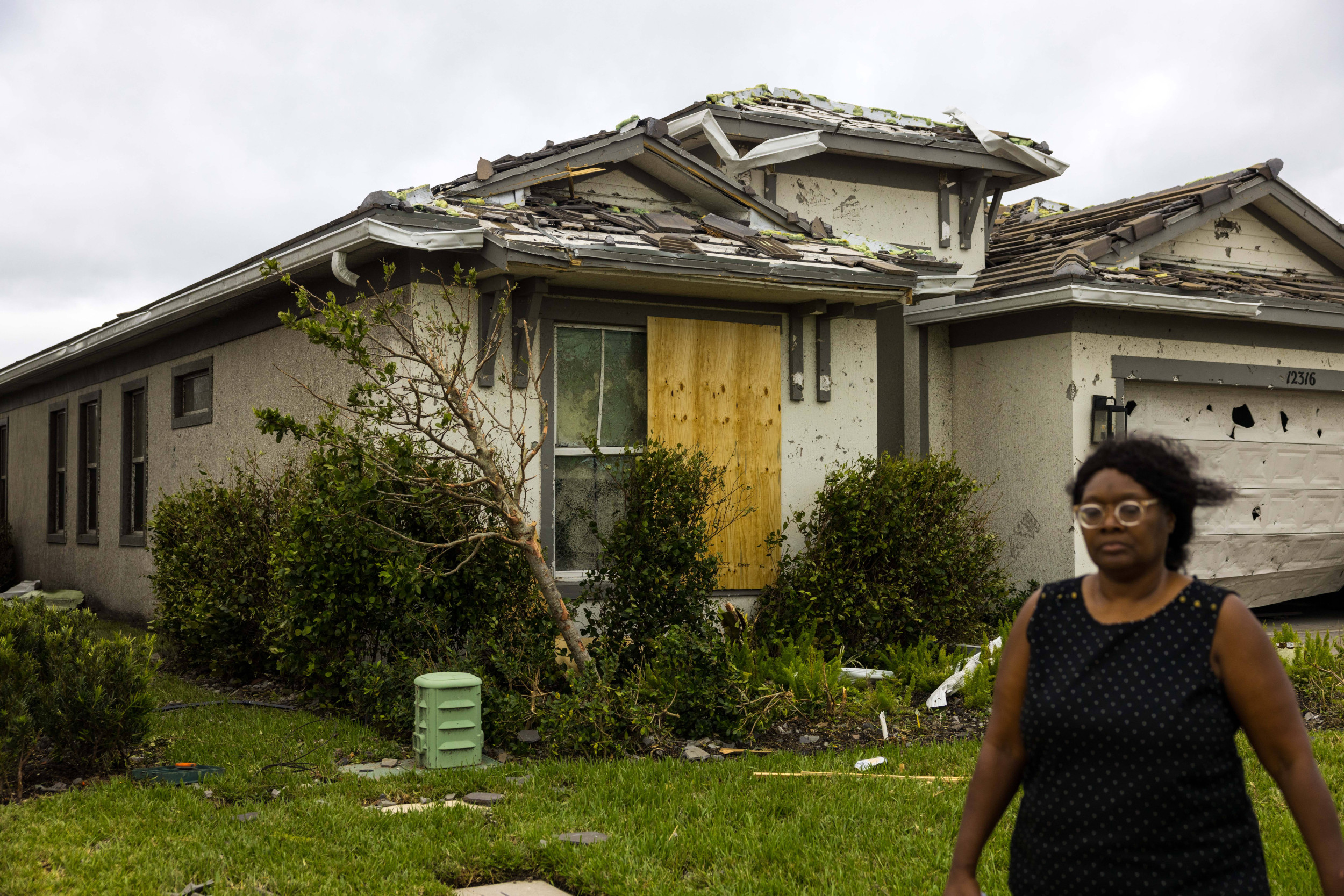
Insurers have paid out about half of the damage claims made by Florida homeowners whose properties were damaged or destroyed by Hurricanes Helene and Milton last year, according to the latest data.
Locke Burt, the CEO of Security First Insurance, one of Florida’s biggest home insurance carriers, told Realtor.com that the reason so many claims hadn’t been paid out was because they were under the policyholders’ deductibles or were not covered by their policies.
Why It Matters
Hurricanes Helene and Milton, which struck Florida within a few weeks’ time between September and October, caused billions in damages, tearing apart homes and covering entire streets with mud. Many homeowners affected by the two deadly hurricanes did not have flood insurance, according to reports—which meant that rebuilding or fixing their homes fell entirely on their shoulders.
Many of those able to raise a claim with their insurers weren’t much luckier. In December, the Florida Office of Insurance Regulation (FLOIR) reported that more than half of all claims related to the two hurricanes had been closed without payment.
What To Know
Hurricane Helene caused $2.2 billion in estimated insured losses in the Sunshine State, FLOIR data showed. As of January 15, 64,760 claims had been raised in relation to Helene for residential properties in Florida. Of these, 34,923 were closed without payment, while 21,816 were paid out.
Of the claims that were closed without payment, 10,030 weren’t paid out because the homeowners’ policies didn’t cover flood damage, and 9,869 weren’t paid out because the damage was below the policyholders’ deductibles.
Deductibles are what policyholders have to pay toward their claim before their insurer begins paying for covered expenses. Larger deductibles are normally associated with lower premiums.
Hurricane Milton caused more than $4 billion in insured losses in Florida. According to FLOIR’s latest available data, policyholders in the state raised 264,763 claims for residential properties affected by the storm. Of these claims, 104,789 were closed without payment, while 116,959 were closed with payment.
Of those closed without payment, 45,725 weren’t paid out because the damages were below deductibles, while 4,264 weren’t paid out because the homeowners’ policies didn’t cover flood damage.

Saul Martinez/Getty Images
All insurance companies in the Sunshine State, according to Florida’s Department of Financial Services, “must offer hurricane deductible options of $500, 2 percent, 5 percent, or 10 percent of the policy dwelling or structure limits.”
Thousands of claims still open with payment were either made recently or are waiting for a contractor to become available to make the necessary repairs, Realtor.com reported. According to FLOIR, 22,668 claims related to Milton were open with payment, while 3,812 claims related to Helene were open with payment.
What People Are Saying
Locke Burt, the CEO of Security First Insurance, told Realtor.com: “The deductibles in Florida are big. The normal hurricane deductible for most people is 2 percent of the value of the house. So if your house is valued at $400,000, that’s an $8,000 deductible … Another reason that we deny coverage is because there’s a significant number of people in Florida who buy a policy that excludes wind damage, and they forget that their policy excludes wind damage. It’s not because we’re being bad guys.”
Mark Friedlander, the director of corporate communications at the Insurance Information Institute, previously told Newsweek: “There are a variety of reasons why a property insurance claim may be closed without payment. Most likely, these are primarily flood claims that are not covered by a standard property insurance, condo insurance or flood insurance policy. You need flood insurance to cover a flood claim.”
What Happens Next
Thousands of claims related to both Helene and Milton remain open, and it’s unclear how long it may take for insurers to close them. FLOIR data shows that claims from two major hurricanes that hit the state in 2022 and 2023—Ian and Idalia, respectively—are still open.





